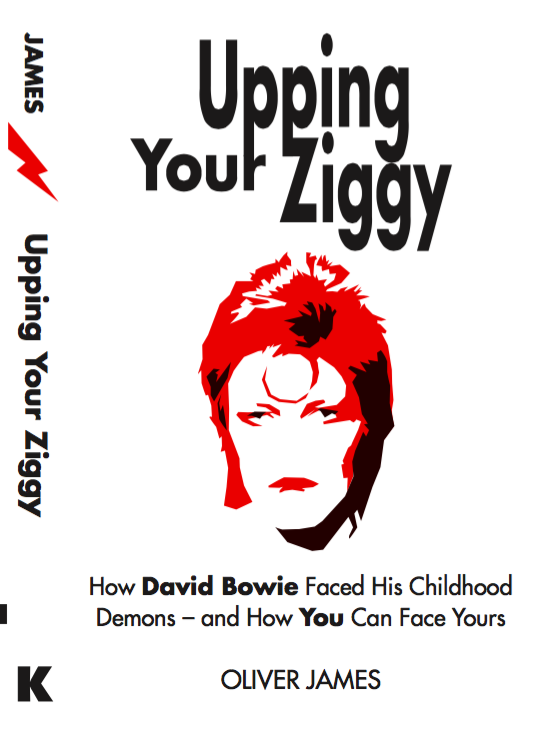UPPING YOUR ZIGGY
David Bowie guarded his privacy carefully, crafting his public image.
Although he spoke in occasional interviews about his fear of madness and of the ‘nuttiness’ of his family, very few people know the truth of that complex backdrop to his creativity.
In this new book psychologist Oliver James, bestselling author of They F*** You Up, Affluenza and Not in Your Genes, explores the mental illnesses that afflicted members of Bowie’s family, and Bowie’s fear that he too was destined for insanity.
‘No art should be crudely reduced to pathology,’ says James, ‘but the way that Bowie’s early life manifested itself in his work is a fascinating tale which offers clues to the exit from distress for all of us.’
The family was certainly unlucky. Three of Bowie’s aunts and his half-brother Terry became psychotic, and his grandmother declared the family cursed. James argues that Bowie’s innovative music and stage personae during the 1970s were his way of eluding the ‘curse’ of madness.
David Jones, the boy from Brixton, became the androgynous rockstar Bowie. During 1973, notes the author, there were periods in which he actually believed he was Ziggy Stardust. Through Ziggy, and other subsequent personae including Aladdin Sane and the Thin White Duke, he engaged in an internal dialogue played out on an international stage from which he emerged as the emotionally healthy man who died in January this year.
Oliver James suggests that while most mental illness derives from childhood adversity, so too does most exceptional achievement, and that the division between the two is not as clear as we might imagine. ‘Bowie’s brother Terry passed through the door marked “Madness”. Bowie himself opened it, took a good look around, and then passed through the adjoining one, marked “Artistic Self-Expression”.’
On using Bowie’s example to help others, James says, ‘There is therapeutic value to us all of personae. Bowie’s life and work show how we can convert the lead of childhood adversity into the gold of emotional health through identifying the roots of our many selves and consciously choosing who we become.’
